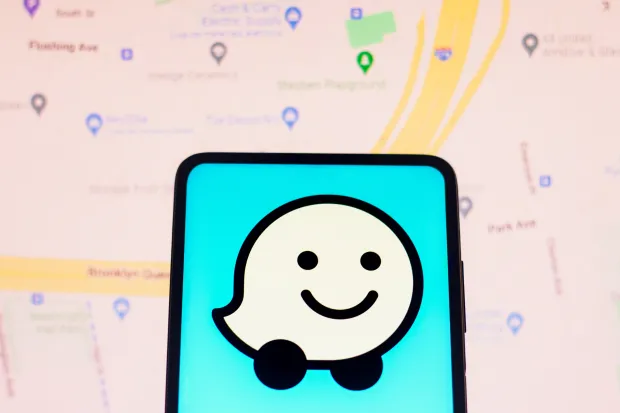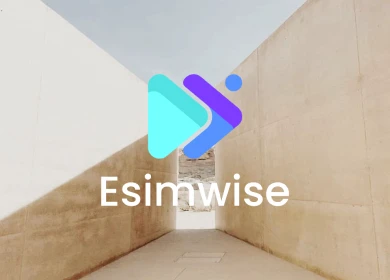I use the Waze navigation app on a regular basis when driving to new places. As someone who values getting turn-by-turn directions and traffic updates in real-time, Waze is really helpful. However, I have noticed that it seems to use a fair amount of mobile data in the background, even when I am not actively navigating somewhere.
To prepare to buy a data plan to travel, I wanted to analyze exactly “How much data does Waze use? Determining the amount helps me decide enough data when navigating with Waze.
Generally, Waze consumes up to 1 MB per hour. In this article, I delve into the depths of Waze’s data usage, analyzing its consumption patterns to provide insights for fellow travelers. Join me as we uncover the impact of Waze on your data plan!
Does Waze use data?
Yes, Waze does use mobile data to function. It needs a constant internet connection to provide real-time traffic information, routing and user-submitted reports. Both the iOS and Android versions of Waze rely on mobile data or WiFi to work. Without an internet connection, Waze would not be able to show maps, provide turn-by-turn navigation or display real-time traffic and reports.
So in summary, Waze is completely dependent on having an active data connection to function as expected. It cannot work without using mobile data.

Do you want to get fast lightning data to use Waze smoothly on the go? Will you trust reliable network coverage to search locations or driving instructions with the app? Here is where Esimwise eSIM data packages come to help you!
There are several plans according to regions or tours that you can choose. All of them are equipped with these two great benefits below, as well as the innovative VPN for unrestricted browsing. Enjoy your trip!
How much data does Waze use?
On average, Waze uses about 0.7 – 1 MB of data per hour of use for basic navigation. This would amount to:
- 15-20 MB per month for light usage of 1 hour per day
- Around 300 MB per month for heavier usage of 10 MB per day

The data usage of Waze depends on several factors:
- Duration of usage: The longer you use Waze, the more data it will consume. Using it for an hour daily would use less data than using it for 5 hours daily.
- Type of usage: If you are just viewing the map and traffic, it uses less data than active turn-by-turn navigation. During active navigation, it continually fetches map tiles and routing data.
- Extra features enabled: Enabling extra features like speedometer, and lane assist can increase data consumption slightly.
- Connection type: Using Waze on a 3G connection consumes less data than on 4G.
- Travel distance: Long drives use more map tile refreshes and traffic checks than short drives, consuming more data.
Of course, this is just an estimate – actual usage can be higher or lower based on route, connectivity and exact usage. However it gives a fair idea of the data consumption of Waze.
FAQs
1. Does Waze consume a lot of data?
Compared to other map and navigation apps, Waze has relatively lower data usage. According to statistics from Statista, Waze used only 0.73 MB on average per 20 minutes, while Google Maps used 1.83 MB and Apple Maps used 6 MB.
So Waze is quite light on mobile data compared to alternatives. For most reasonable, daily usage, Waze will only consume about 100-150 MB per day, which is not very high. Only if used extensively for 5+ hours daily would it start consuming significant amounts of data.
2. Will Waze work without data?
No, Waze will not work properly without an internet connection. The limitations of using Waze offline include the absence of real-time updates such as live traffic information, accidents, hazards, or road closures, as well as the inability to reroute in response to unexpected delays.
Additionally, the map details are limited to pre-downloaded data, potentially excluding recent changes or new roads, and voice guidance features require an internet connection.
However, basic navigation remains possible using the pre-downloaded map data, including turn-by-turn guidance displayed on the map and provided through basic text instructions. Furthermore, the GPS location functionality continues to work, allowing users to view their position on the map.
Wrap up
In summary, while Waze relies completely on a data connection, it has relatively low data usage compared to alternatives. With about 1 MB consumed per hour of navigation, it will only use around up to 10 MB daily for typical use. Enabling extra features, using it more extensively, or having poor network connectivity can increase consumption.
Now you have your answer to the question: How much data does Waze use? Therefore, you can estimate the amount you need for the next trip. Don’t hesitate to express your thoughts or questions in the comment section. Consider sharing this article with your friends too!
















